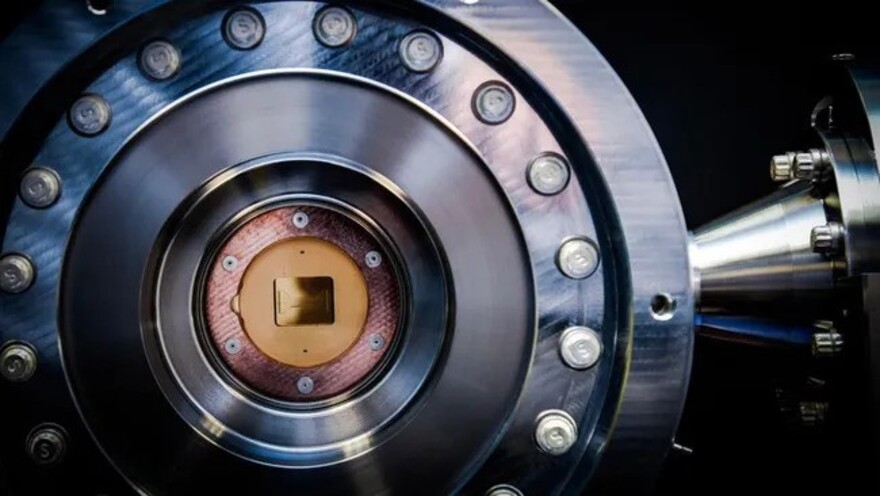Quantinuum’s H2-1 quantum computer has set a new performance record for such devices. It surpassed the achievement of the Sycamore machine tested by Google in 2019. Scientists continue to work on the reliability of these systems.

H2-1 quantum computer
Quantinuum specialists have published a study describing the results of a number of tests of their new H2-1 computer. They claim that when performing a well-known benchmarking task, their creation performed 100 times better than the Sycamore tested by Google in 2019.
Quantum computers are considered to be the future of computing. Due to their use of quantum states of elementary particles rather than just electron cells, they can parallelize processes almost infinitely. Therefore, theoretically, they can perform calculations in seconds but the most powerful electronic machines would take thousands of years.
The point at which this happens is called “quantum supremacy”. However, in order to achieve it, it is necessary to build a computer consisting of more than a million qubits. The latter are analogous to bits in electronic machines. Each of them can take on different quantum states, but in general these units are arranged in a much more complex way than their counterparts from conventional computing machines.
However, it is not the complexity that is the main reason why, despite all theoretical hopes, quantum computing has been stuck in place for several years. Compared to electronic computers, these computers make too many errors. That is why none of them has more than 1,000 qubits so far.
Reliability of computing machines
This is why quantum computer designers are now focusing not on increasing the number of qubits, but on improving their reliability. Actually, both record holders, past and present, are quite small machines.
Sycamore contains only 53 qubits, while H2-1 contains 56 qubits. A linear cross-entropy test was used to assess the reliability of both. It gives an estimate of the accuracy of the computation, with 0 corresponding to situations where all results contain errors and 1 that all are free of them.
Sycamore’s score on this test in 2019 was 0.002. That is, its result was bad. And all because it used physical qubits – specially designed devices for this task. H2-1, on the other hand, uses “virtual” ones, i.e., modeled on an ordinary computer. Experts attribute the reliability score of 0.35 achieved on the linear cross-entropy test to this.
This is still not enough to create commercial quantum computers, but it is much closer to a real-world result. Engineers expect the following experiments to achieve it.
According to www.space.com


